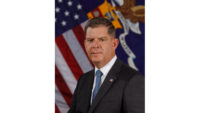As part of its plan to address the economic impact of the COVID-19 pandemic, the Trump administration says it will offer payroll tax credits to businesses with fewer than 500 employees to help provide their employees with paid leave, either for the employee’s own health needs or to care for family members, a move that drew mixed reactions from the construction industry.
[For ENR’s latest coverage of the impacts of the COVID-19 pandemic, click here]
The plan, which the Treasury and Labor Depts. announced on March 20, would allow employers to retain quarterly federal payroll-tax payments equal to the amount of their approved credits. The program would implement a provision of recently enacted legislation.
If an employer’s payroll taxes don’t cover the full amount of the credit, Treasury’s Internal Revenue Service says the companies will be able to file a request for an accelerated payment from the IRS.
The IRS claims that accelerated payments can be approved within two weeks under an expedited procedure that will be announced within the next week.
“The legislation will enable employers to keep their workers on their payrolls, while at the same time ensuring that workers are not forced to choose between their paychecks and the public health measures needed to combat the virus,” according to a joint announcement from Treasury, the IRS and the U.S. Dept. of Labor.
Under the Families First Coronavirus Response Act, which President Trump signed into law on March 18, workers for eligible employers can receive up to 80 hours of paid sick leave at a rate equal to 100% of the employee’s pay.
The leave credit applies to employees unable to work because they are under quarantine and/or experiencing COVID-19 symptoms and seeking a medical diagnosis. Employers can receive a refundable sick-leave credit at the employee’s regular rate of pay, up to $511 per day for a total of 10 days.
Employees who are unable to work because they are caring for someone under quarantine or caring for a child whose school is closed or child-care provider is unavailable, can receive up to 80 hours of paid sick leave at two-thirds of the employee’s pay. Health insurance costs are also included in the credit.
For employees caring for someone under quarantine, the credit is capped at $200 per day for up to 10 days. A maximum of 10 weeks of qualifying leave can be counted towards the child-care leave credit, capped at $200 per day.
The plan drew mixed reactions from construction industry officials, who raised concerns about the government’s use of tax credits rather than cash payments.
“We certainly support the intent of the new rules to help the workforce through this crisis, but Congress needs to do more to help the small and mid-sized engineering firms with the cash-flow crisis that will follow,” said Jeff Urbanchuk, a spokesman for the American Council of Engineering Companies.
“As Congress works on a new stimulus package, one of the key priorities should be to ensure that businesses remain viable so that the jobs will be there when the economy recovers,” Urbanchuk added.
Senate negotiations aimed at producing that envisioned stimulus legislation were continuing as of March 22.
Brian Turmail, an Associated General Contractors of America spokesman, said many contractors will struggle with making payments while waiting for federal tax credits to take effect, “at a time when they are reeling from a market that is evaporating in front of their eyes.”
Turmail added, “A better solution would have been for the federal government to have paid, up front, for the costs of these new measures either through unemployment insurance or the Social Security Administration, especially since firms had no opportunity to anticipate or plan for these new mandates."
Turmail also said AGC is skeptical that the IRS would be able to expedite requests from employers for accelerated payments under a new procedure. “We question whether the administration will actually be able to provide relief within two weeks, considering the volume of requests they are likely to receive,” he added.


Post a comment to this article
Report Abusive Comment